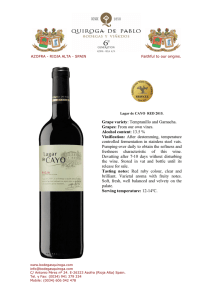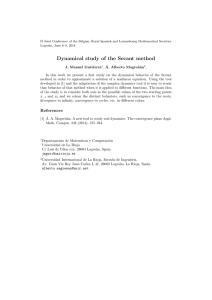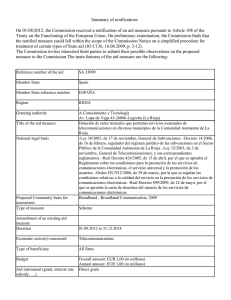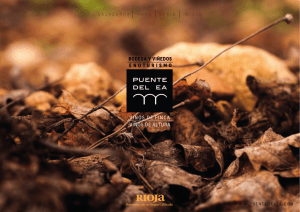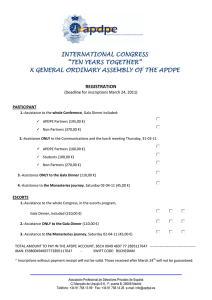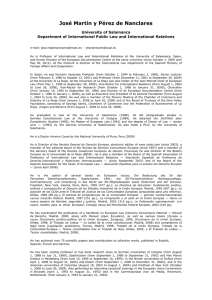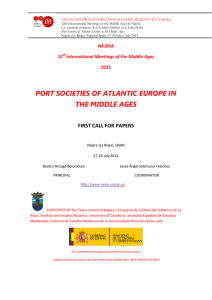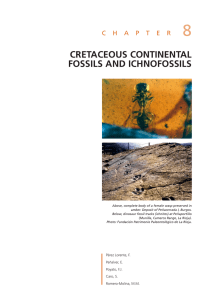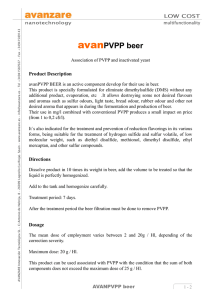Rioja maps sheets_mediakit.indd
Anuncio
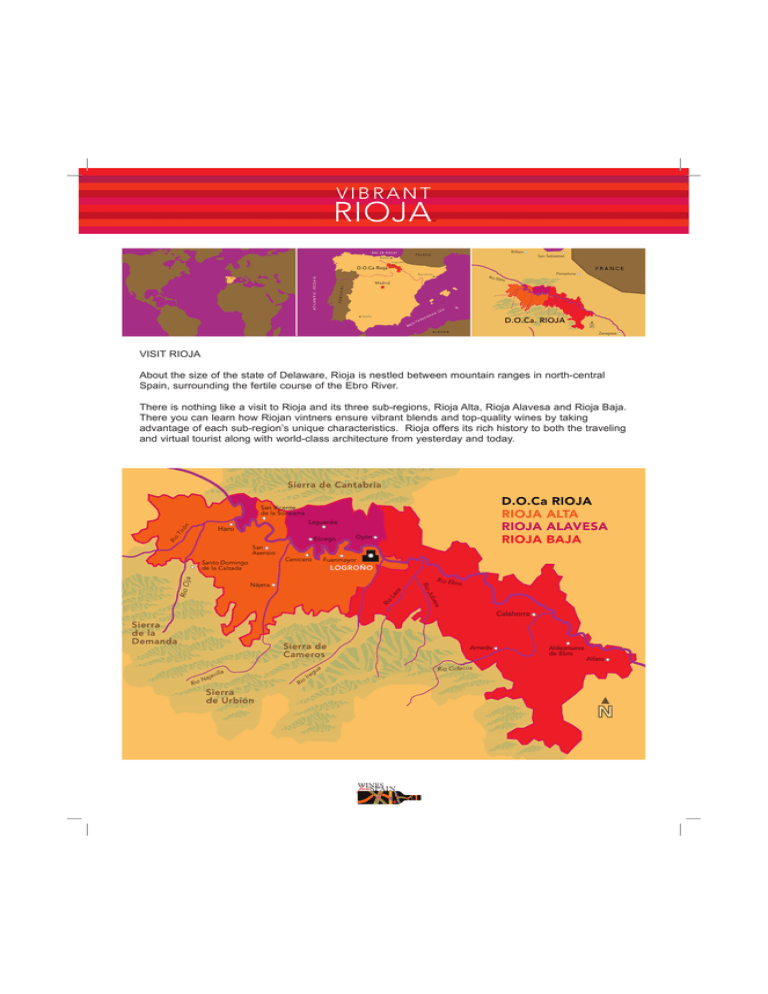
SM Bilbao BAY OF BISCAY FRANCE San Sebastian #JMCBP -PHSPvP D.O.Ca Rioja FRANCE AT L A N T I C O C E A N #BSDFMPOB Rio E PORTUG AL Madrid Pamplona bro 4FWJMMB M ED IT R ER AN EA N SE A N D.O.Ca. RIOJA ALGERIA N Zaragoza VISIT RIOJA About the size of the state of Delaware, Rioja is nestled between mountain ranges in north-central Spain, surrounding the fertile course of the Ebro River. There is nothing like a visit to Rioja and its three sub-regions, Rioja Alta, Rioja Alavesa and Rioja Baja. There you can learn how Riojan vintners ensure vibrant blends and top-quality wines by taking advantage of each sub-region’s unique characteristics. Rioja offers its rich history to both the traveling and virtual tourist along with world-class architecture from yesterday and today. Sierra de Cantabria D.O.Ca RIOJA RIOJA ALTA RIOJA ALAVESA RIOJA BAJA San Vicente de la Sonsierra n Laguardia o Ti ró Haro Ri Elciego Oyón San Asensio Cenicero Santo Domingo de la Calzada Fuenmayor Le o ro era Ri Rio Eb Jub za Nájera Rio Rio O ja LOGROÑO Calahorra Sierra de la Demanda Sierra de Cameros N Rio aje rilla Sierra de Urbión Ri o Ire g ua Arnedo Aldeanueva de Ebro Alfaro Rio Cidacos N SM FACT SHEET: THREE REGIONS Traditionally, Rioja wines have used a blend of grapes from all three sub-regions. The differences in altitude, soil types and climate add up to ensure that every Rioja vintage is crafted from the highest quality grapes, selected from vineyards in the most successful and productive areas. Today, many wineries are also bottling single-vineyard wines, taking advantage of Rioja’s microclimates and varying soil types to produce unique wines with a distinctive character. Sierra de Cantabria RIOJA ALTA n San Vicente de la Sonsierra Ri o Ti ró Haro San Asensio Rio Eb Cenicero Santo Domingo de la Calzada ro Fuenmayor za Ri era o Le Jub Rio O ja LOGROÑO Nájera Rio Rioja Alta is the westernmost of La Rioja’s three sub-areas. It is influenced by the Atlantic Ocean’s climate and is relatively dry, with a high elevation. The soil in Rioja Alta is rich in iron, limestone and clay, along with nutrients deposited in the region by the tributaries of the Ebro River. Rioja Alta is known for producing full-bodied wines with a medium alcohol content that are suitable for aging in oak casks, forming the basis of most red Riojas. Sierra de la Demanda Sierra de Cameros Cd RIOJA ALAVESA Labastida o Ti ró n Laguardia Ri Elciego Oyón za Le o Ri era Sierra de la Demanda Rio Eb Jub Rio O ja LOGROÑO Sierra de Cameros RIOJA BAJA Le o ro era Ri Rio Eb Jub za LOGROÑO Rio Rioja Baja is the hottest and driest area of Rioja, and is strongly influenced by the Mediterranean climate. It is relatively low in elevation, compared to Rioja Alta and Alavesa, and its soil is mostly gravelly. Rioja Baja produces red wine with a higher alcohol content and is known for its fine rosé wines as well. Sierra de Cantabria Rio Rioja Alavesa has the highest elevation out of the three sub-regions, and is known for its distinctive chalky soil and sloping landscape. It is influenced mainly by the climate of the Atlantic, but draws some moisture and heat out of the lower-lying Mediterranean lands to the east. Rioja Alavesa is known for lighter colored, aromatic wines, but also produces many red wines with an alcohol content and acidity suitable for aging. Calahorra Ri o Ire gu a Sierra de Cameros Arnedo Aldeanueva de Ebro Alfaro Rio Cidacos N ro

